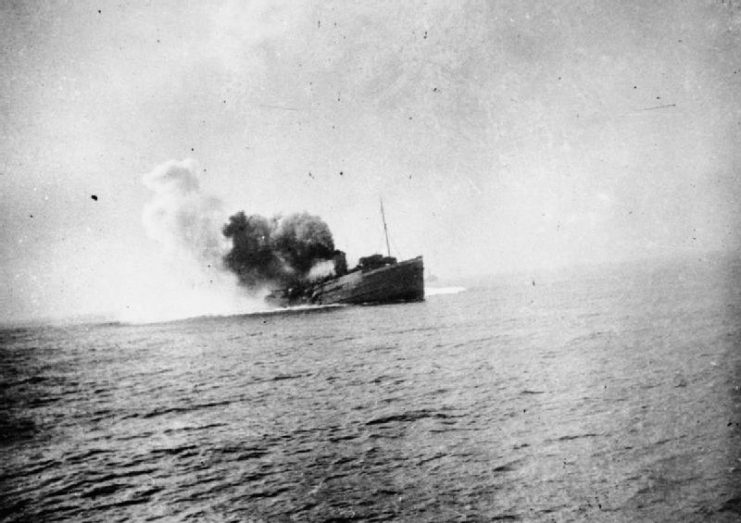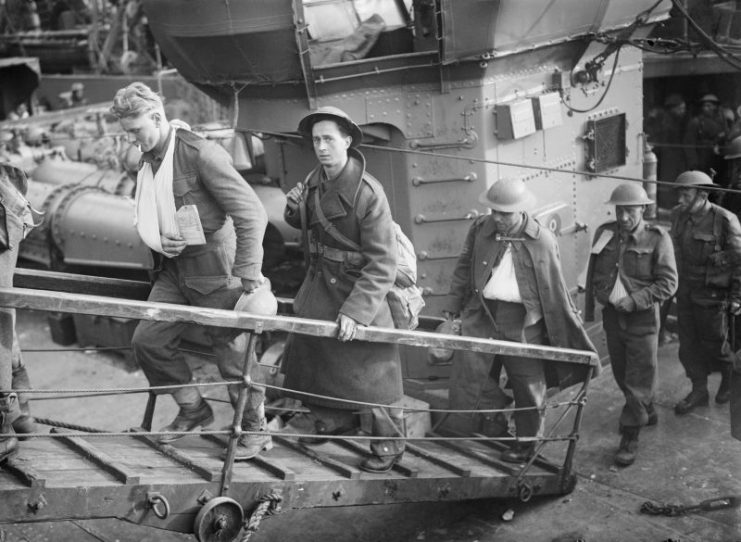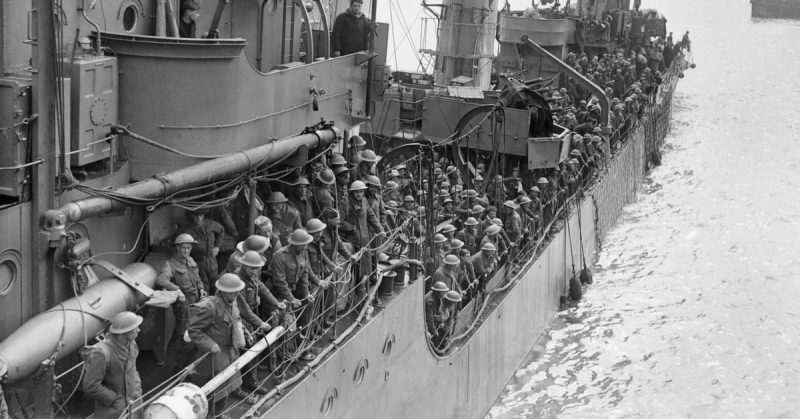Although the film The Darkest Hour has brought the events to life, the evacuation of Dunkirk in WWII was even more horrific than people realize. While most of the British Army was to be evacuated from Dunkirk and other locations along the French coast, there was one brigade that was given the order to hold back the Germans – at any cost.
Britain’s Prime Minister Winston Churchill made the order. And hold the line they did, sacrificing themselves to buy time for the British forces to escape, just 30 miles from their last stand at the port of Calais.
The Calais garrison, in particular, was of central importance to the film The Darkest Hour, a biopic about Winston Churchill during that time. The film has reopened many old wounds for those who lived through the event, but also for the loved ones of those who survived the fight at Calais. One such gentleman, Alec Jay, is remembered by his son to have never quite recovered from his ordeal.
In May 1940 Jay was 20. His son remembers him as a rude and impatient man, both in his work and at home, meaning father and son were not close. Nevertheless, when Alec died in 1993, his son regretted not talking with his father more. The regret increased when he discovered that his father had written the first seven pages of an autobiography and numerous notes.

His father had not always been the angry, distant man he had known, but a hero who had fought in Calais so others could escape. He had been captured by the Nazi’s and had to hide the fact that he was Jewish to avoid being exterminated. During his five year imprisonment, he made as many attempts to escape his German captors, finally becoming a freedom fighter near the end of the war.
The notes set off a flurry of research by Jay’s son. He retraced his father’s journey trying to understand the man he never really knew when he was alive. He discovered that his father had volunteered for the war, and had not been conscripted. Jay had joined the British Territorial army in 1938 due to his hatred of fascists.
As Hitler marched through Belgium to kick off WWII, Jay’s regiment was among the first shipped off to fight. The regiment, known as Queen Victoria’s Rifles, knew there was little chance of them returning home. The 3,000 riflemen held out for as long as humanly possible against over 25,000 Germans and two armored divisions, retreating not by the mile but by the meter.

Even at the end, as they could see the cliffs of Dover glittering in the distance, they continued fighting until they were inevitably captured. A German soldier took Jay’s revolver and, pushing it into his face, taunted him asking “Shall I?” in German repeatedly.
During his first night as a prisoner, Jay slept in a graveyard. Then he began a three-week march to Germany, during which stumbling or slowing down meant being shot. Once he reached Germany, he hid his Jewish heritage and acted as an interpreter as often as he could.
An anti-Semitic in his camp revealed his roots, but Jay’s mates came to his rescue and defended him. After that, he was forced to wear a white armband to show that he was different. It incensed him. Becoming angrier he turned his fury into action by making four escape attempts before on the fifth he was successful. He then fought alongside European partisans and was further horrified by their actions.
Upon returning home, Alec Jay remained angry and felt guilty about his survival. When he was referred to a psychiatrist, he could not talk about his experiences and had to walk out.
The horrors of war never left the brave Alec Jay, and as his son says, no film will ever accurately portray that.
